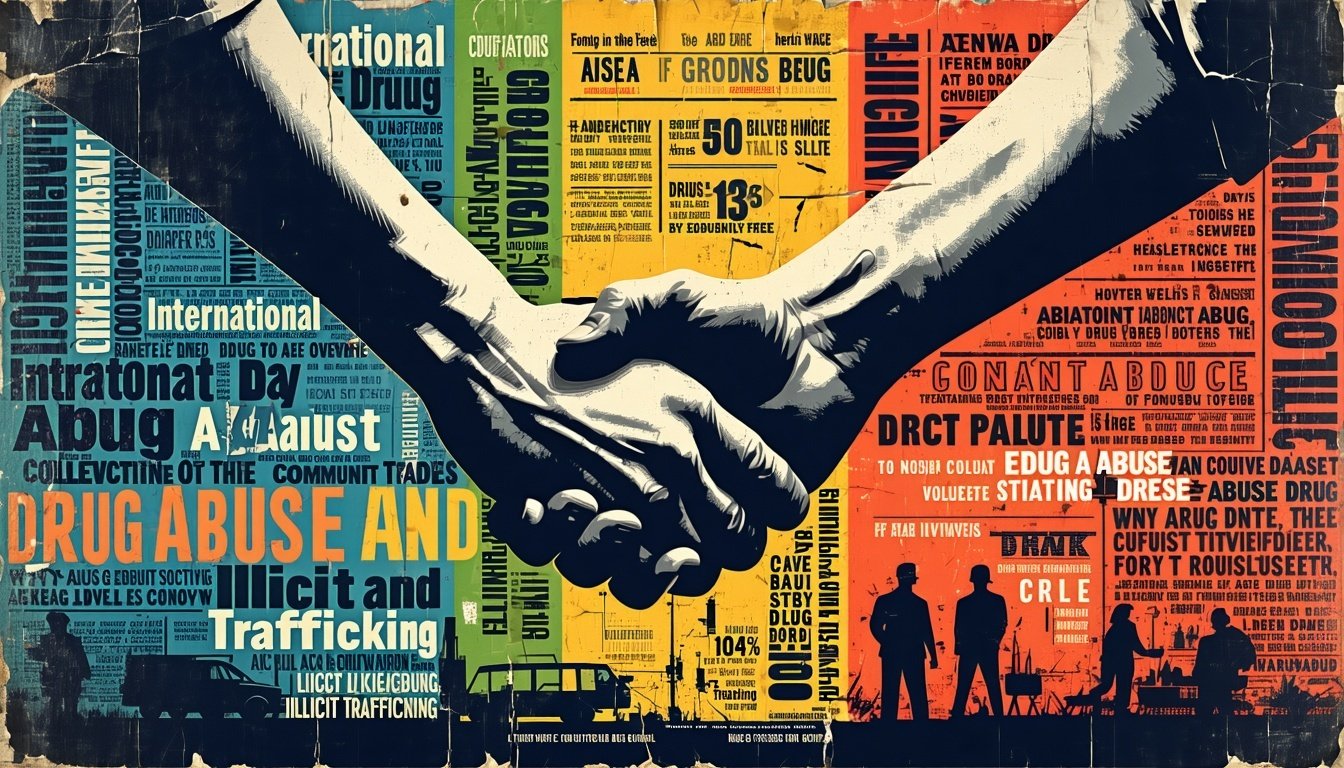International Day Against Drug Abuse and Illicit Trafficking: A Global Call for Awareness and Action
Medical Pharmaceutical Translations • Jun 30, 2025 12:00:00 PM

Each year on June 26, the world observes the International Day Against Drug Abuse and Illicit Trafficking, a United Nations initiative dedicated to raising awareness about the devastating impact of drug abuse and illegal drug trade on individuals, families, and societies. It is a day to reaffirm the global commitment to preventing substance abuse, promoting treatment and rehabilitation, and strengthening international cooperation.
In today’s interconnected world, combating drug abuse requires more than law enforcement or medical intervention—it requires inclusive communication, culturally sensitive outreach, and community-driven solutions that bridge linguistic and social gaps.
Understanding the Scope of the Crisis
According to the United Nations Office on Drugs and Crime (UNODC):
-
Over 296 million people worldwide used drugs in 2021.
-
An estimated 39.5 million people suffer from drug use disorders.
-
Opioids, especially synthetic ones like fentanyl, continue to drive increases in drug-related deaths.
-
Youth, marginalized communities, and displaced populations are especially vulnerable.
Illicit drug trafficking not only fuels addiction but also perpetuates violence, undermines public health, and weakens social and economic development across nations.
Breaking Barriers Through Communication and Education
Addressing drug abuse involves more than raising awareness—it involves ensuring that information is accessible, accurate, and culturally relevant. Across the globe, public health organizations, community leaders, educators, and medical professionals are working to:
-
Educate people about the risks of drug use through multilingual and accessible campaigns.
-
Combat misinformation and stigma, especially around addiction and mental health.
-
Encourage early intervention and treatment, particularly in underserved populations.
-
Support harm reduction efforts, including safe-use education and access to life-saving interventions like naloxone.
-
Facilitate international cooperation to share research, policies, and best practices.
These efforts are most effective when they are linguistically inclusive and culturally sensitive, recognizing that how we talk about drugs and addiction can either empower or alienate.
Advances in Treatment and Research
Significant progress has been made in understanding addiction as a medical condition rather than a moral failing. Treatments for substance use disorders (SUDs) now include:
-
Medication-assisted therapies (MAT) such as methadone and buprenorphine.
-
Behavioral therapies and psychosocial support.
-
Community-based recovery programs tailored to local needs.
Clinical trials continue to explore new treatments, including innovative therapies and digital health tools that support long-term recovery. However, access to these advances often depends on clear communication across different languages, literacy levels, and healthcare systems.
Collective Responsibility and Global Solidarity
The International Day Against Drug Abuse and Illicit Trafficking is a call to action—not just for governments and professionals, but for everyone. Building a world that protects people from the harms of drug abuse requires:
-
Empathy and understanding, especially toward those living with addiction.
-
Equity in access to education, prevention, and treatment resources.
-
Collaboration across sectors—from healthcare and law enforcement to education and media.
Language plays a key role in this process. It shapes how messages are received, how people seek help, and how policies are interpreted. Ensuring that information is delivered effectively and respectfully in multiple languages is essential for reaching the people who need it most.
Looking Forward
As communities around the world observe June 26, it’s important to remember that awareness is only the first step. By investing in prevention, supporting those in recovery, and fostering inclusive dialogue, societies can make meaningful progress toward reducing the harms of drug abuse and dismantling the systems that sustain illicit trafficking.
In a world of growing complexity and diversity, our ability to communicate with clarity, compassion, and cultural awareness is more crucial than ever.
